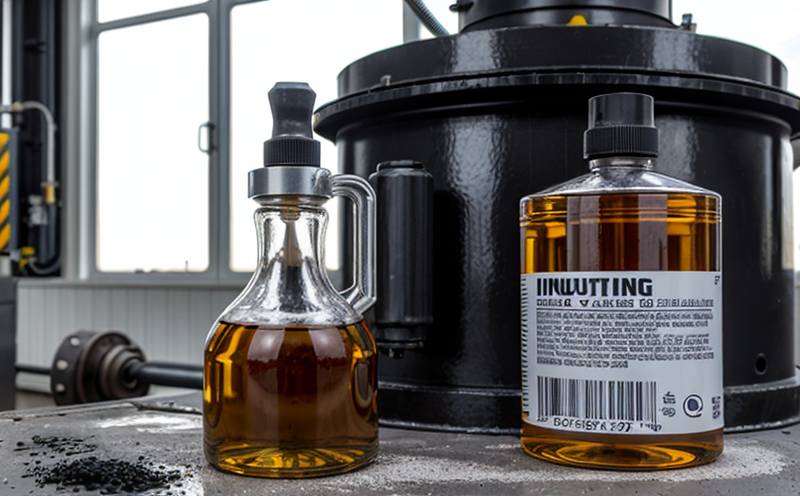ISO 12937 Water Content Testing of Oils by Karl Fischer
The ISO 12937-1 method, a standard widely recognized in the chemical and industrial sectors, specifies the procedure for determining water content in oils using the Karl Fischer titrimetric technique. This meticulous process is vital for ensuring product quality and compliance with industry standards, particularly critical in industries such as automotive, aerospace, and electronics.
The Karl Fischer titration method quantifies moisture by reacting a known volume of oil with a reagent that reacts only with water present in the sample. The endpoint is detected via electrical conductivity changes when water is consumed during the reaction. This makes it an indispensable tool for assessing water contamination levels, which can lead to degradation, corrosion, and performance issues.
At Eurolab, we specialize in providing ISO 12937-1 testing services tailored to meet the stringent requirements of industrial oil and additive manufacturers and quality assurance departments. Our comprehensive approach ensures accurate results that are crucial for maintaining product integrity.
The test method is applicable across various types of lubricating oils, hydraulic fluids, greases, and other petroleum-based products. It allows us to detect even trace amounts of water, which can be indicative of contamination during production or storage processes. Understanding these levels is essential for compliance with international standards like ISO 12937-1.
| Sample Type | Water Content Range (ppm) | Method Sensitivity |
|---|---|---|
| Lubricating Oils | 0.1 to 2,000 ppm | Less than 1 ppm |
| Hydraulic Fluids | 0.05 to 1,500 ppm | Less than 0.05 ppm |
| Greases | 20 to 800 ppm | Less than 20 ppm |
The method's sensitivity allows for precise detection of water content, even in trace amounts. This precision is crucial for industries where even slight variations can impact product performance and lifespan.
In addition to the technical aspects, the Karl Fischer titration process involves careful sample preparation, including degassing and filtration to ensure accurate results. Our team of experts ensures that each sample is handled with utmost care, minimizing any potential errors in the final analysis.
Eurolab Advantages
- Accurate and reliable test results
- ISO/IEC accreditation ensuring compliance with international standards
- Experienced technicians specializing in chemical analysis
- State-of-the-art laboratory equipment for precise measurements
- Dedicated customer support to assist with all queries and requirements
Our commitment to quality and precision sets us apart. With Eurolab, you can rest assured that your samples will be handled with the highest level of expertise and attention to detail.
Quality and Reliability Assurance
- ISO/IEC accreditation ensuring compliance with international standards
- Regular calibration of instruments to maintain accuracy
- Dedicated quality control processes to ensure consistent results
- Continuous training for our technicians to keep up-to-date with the latest methodologies and technologies
Use Cases and Application Examples
The ISO 12937-1 method is widely used in various industries where the presence of water can have significant implications. Here are some examples:
- Automotive manufacturers ensuring that engine oils meet stringent quality standards to prevent corrosion and ensure optimal performance.
- Hydraulic equipment manufacturers testing hydraulic fluids for trace amounts of water to avoid system failures due to fluid degradation.
- Military contractors verifying the integrity of lubricants used in critical systems, where even minimal water contamination could have catastrophic consequences.





